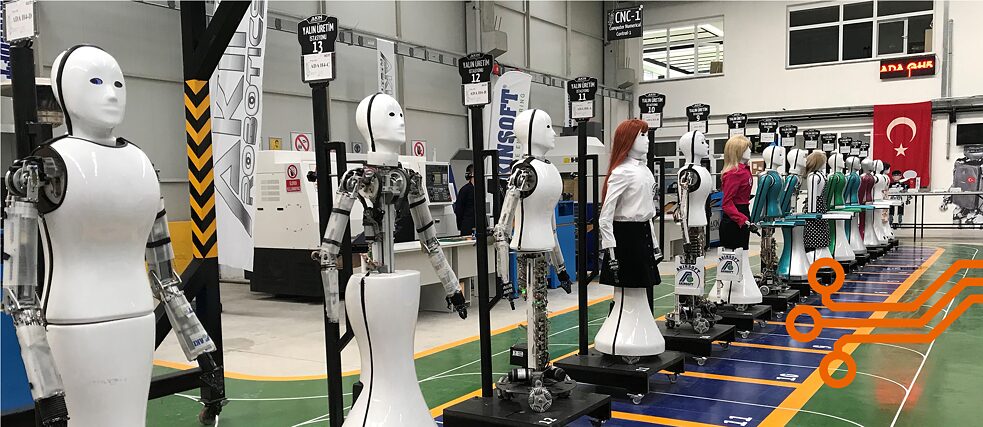Industry 4.0
The end of human labor?

The next industrial revolution is just around the corner: Industry 4.0 describes the increasing automatization of production and logistics. Today the smallest computers can control huge machines and systems and are replacing more and more people.
By Johannes Zeller
According to a World Economic Forum (WEF) study, people still do 71 percent of all work around the globe. This number is falling fairly quickly though, and the WEF predicts that the balance will shift by 2025 with machines performing more work tasks than people. This transformation will be brought about by the digitalization of industrial production known as Industry 4.0.
“In practical terms, this involves installing small computers in machines and systems and their components, which are linked up via internet technologies,” automation expert Olaf Sauer from the Fraunhofer Institute for Optronics, Systems Engineering and Image Evaluation explains. These computers will take on the workload now being done by humans, controlling machines and systems. What’s more, people will also work in tandem with machines in some areas. This is already taking place at WS System, a component installer in Lower Saxony, where employees wear data goggles that allow a computer to monitor and increase the accuracy and speed of the manufacturing process.
The applications run the gamut from 3D printers, autonomous transport robots and intelligent energy grids to cyber-physical production, individualized manufacturing and automated maintenance. A Bitkom study found that almost half of all the industrial firms in Germany were already using Industry 4.0 applications in 2016, and just under 20 percent were planning to integrate them into production. The Bundesverband der Deutschen Industrie e.V. (Federal Association of German Industry) predicts a potential 425 billion euros in additional revenue by 2025.
Alpine processing power
The rise of robots will completely remake the working world as we know it today. The WEF anticipates the displacement of around 70 million jobs. Roughly 133 million new jobs will be created as well though, as in addition to automating familiar manufacturing processes, Industry 4.0 will also give rise to entirely new industries.
Crypto mining company Hydrominer, founded by sisters Nadine and Nicole Dambolon in 2017, is just one example. As digitization drives up demand for computing power, Hydrominer works with hydroelectric power plants to environmentally “mine” at two locations in the Austrian Alps, powering blockchain algorithms. One year in, the company’s team has expanded to 16 regular employees and almost as many external advisors.
“Right now, we’ve got people from very different industries and the entry barriers are still very low,” Managing Director Nadine Damblon reports. The two founders have not yet been confronted with the fact that workers will require comprehensive additional training to keep pace with changes, as Olaf Sauer has emphasised. Their industry in particular offers good opportunities for trained logistic and warehouse workers with the technical know-how to set up and maintain the mining facilities.
Industrial secrets in the cloud
Olaf Sauer predicts Industry 4.0 will generate great opportunities for German industry. “If we enrich German expertise and experience in mechanical engineering with information technology, we will be able to maintain or even expand our global competitive position.” He cites IT security and the next generation of employees as major challenges. For networked companies, adequately protecting sensitive data and industrial secrets is particularly critical. According to Sauer, it is also important to get more young people interested in careers involving technology. Industry 4.0 needs a constant influx of graduates from STEM fields (science, technology, engineering and mathematics) with the skills to train and feed algorithms to robots.
According to Reiner Hoffmann, Chairman of the German Confederation of Trade Unions (DGB), as Industry 4.0 develops, it is particularly important not to lose sight of one thing in particular: robots should work for, not instead of, people. Industry 4.0 will “only be accepted and tolerated by people, whether employees or consumers, if technology serves them and not the other way round,” he recently told the “Welt” newspaper.